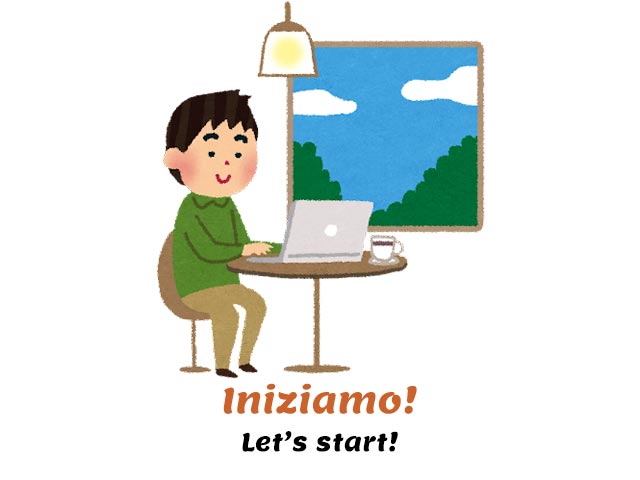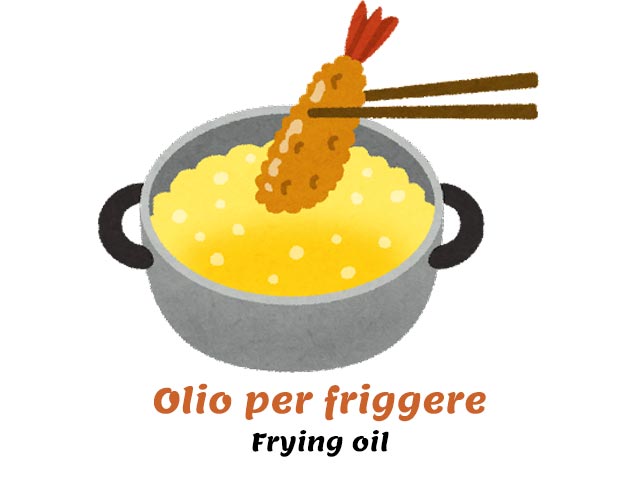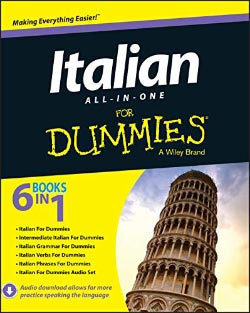How do you say enough in Italian? How do you pronounce it? Are there different ways to translate it?
In this lesson, we will look at how to say this word with the help of many audio recordings and example sentences. Read on to learn everything you need to know!

Enough in Italian
Basta!
Basta is how you translate enough in Italian when you’ve just had enough.
Basta!
That’s enough! I’ve had enough!
Its pronunciation is close to bus-tah. If you have trouble pronouncing Italian sounds, check out the Italian pronunciation guide.
Now, let’s see some example sentences with enough in Italian, before we take a look at how to use this word in other contexts.
Title: Italian All-in-One For Dummies
Language: English / Italian
Publisher: For Dummies
Pages: 672
Learn to speak Italian like a native? Easy.
Italian All-in-One For Dummies appeals to those readers looking for a comprehensive, all-encompassing guide to mastering the Italian language. It contains content from all For Dummies Italian language instruction titles, including Italian For Dummies, Intermediate Italian For Dummies, Italian Verbs For Dummies, Italian Phrases For Dummies, Italian Grammar For Dummies, and Italian For Dummies Audio Set.
Ora basta! Mattia, fila subito in camera tua!
That’s enough! Mattia, go straight to your room!
Basta, me ne vado!
That’s it, I’m leaving!
Basta parlare! Torna a lavorare!
That’s enough talking! Get back to work!

Ne ho abbastanza!
You can also translate enough as ne ho abbastanza, literally I have enough of it. You use this when someone or something is so annoying that you can’t take it anymore, just like basta!.
Ne ho abbastanza! Smettetela di fare casino!
Enough is enough! Stop messing around!
Ne ho abbastanza del tuo comportamento!
I’ve had enough of your behavior!
Ne ho abbastanza di questa pioggia! Quando arriva il sole?
I’ve had enough of this rain! When is the sun coming?
Where does basta come from?
Basta is a present impersonal conjugation of the verb bastare, which means to be enough.
Although there are conjugations like I am enough in the language (io basto), we usually use this verb in the third person singular and plural to translate that something is enough.
| basta | bastano |
| it’s enough (singular subject) | they are enough (plural subject) |
Questo zucchero non basta per fare una torta.
This sugar is not enough to make a cake.
Queste uova non bastano. Ne abbiamo altre?
These eggs are not enough. Do we have any more?

If you want to say that something is enough for you, you’ll have to use an indirect object pronoun.
| Pronoun | English |
|---|---|
| Mi | to me |
| Ti | to you (sing.) |
| Gli, le | to it (m/f) |
| Ci | to us |
| Vi | to you (pl.) |
| Gli, loro | to them (m/f) |
For example, you could say…
Mi bastano cinque minuti per creare la bozza del disegno.
I only need five minutes to create the draft design.
Non mi bastano le nostre telefonate. Voglio anche vederti.
Our phone calls are not enough for me. I want to see you too.
Ti bastano sei polpette per cena?
Will six meatballs be enough for you for dinner?

Abbastanza
Abbastanza is another standard translation for enough in Italian. It’s a synonym for the verb bastare, but because it’s an adverb, it’s associated with a verb, not a noun.
For example, you could say…
Non avete ancora mangiato abbastanza? Siete dei pozzi senza fondo!
Haven’t you had enough to eat yet? You are bottomless pits!
Literally: Haven’t you eaten enough already?
Hai dormito abbastanza stanotte?
Did you sleep enough last night?
It can also be used as an adjective. It doesn’t have any variants because it doesn’t have to agree in gender and number with the noun it’s bound to.
Avrai abbastanza forza per alzare questo masso?
Will you have enough strength to lift this boulder?
Non ho abbastanza olio per friggere.
I don’t have enough frying oil.

Finally, abbastanza can also mean quite or pretty.
Questo vestito è abbastanza caro. Non credo di potermelo permettere.
This dress is quite expensive. I don’t think I can afford it.
And that’s the end of our lesson on how to say enough in Italian!
What next?
Now that you’ve seen how to say enough in Italian, you might want to keep learning Italian online with these free Italian resources:
❤️ If you liked this lesson on how to say enough in Italian, consider sharing it with your social media friends who are also studying Italian.




